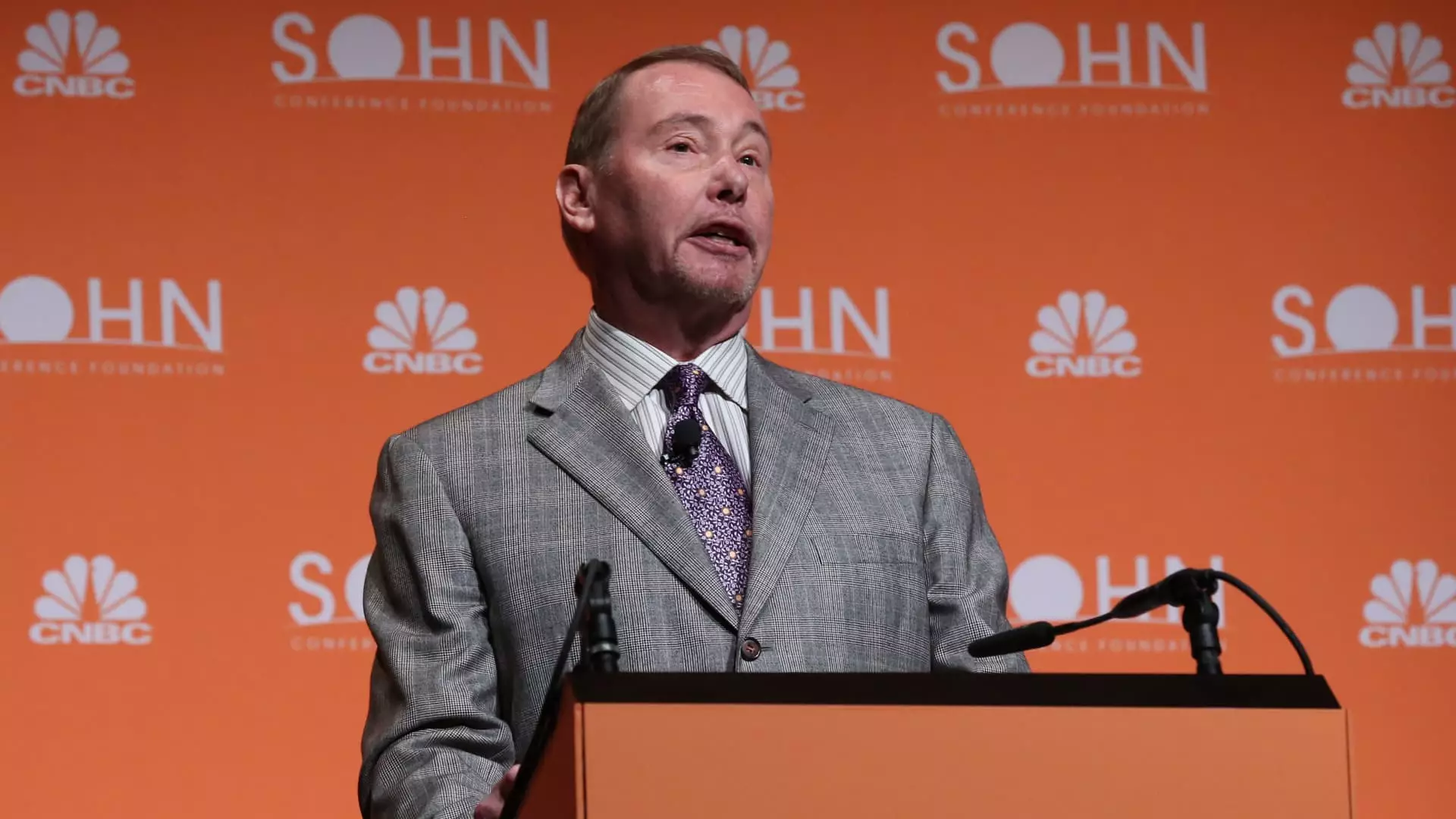In recent discussions surrounding the shifting political landscape in the United States, eminent investor Jeffrey Gundlach emphasized the potential for rising interest rates if Republicans take control of the House of Representatives. Gundlach’s insights, stemming from his extensive experience in managing DoubleLine Capital, pinpoint a critical intersection of politics and economic policy that could have far-reaching effects on financial markets. With a total asset management exceeding $96 billion, his perspective is pivotal, especially as the implications of increased government spending loom large.
The prevailing notion is that if the Republicans secure their political position, this could grant the newly elected President-elect Donald Trump an unfettered opportunity to drive fiscal policies that favor expansive spending. According to Gundlach, such a scenario would necessitate increased borrowing through Treasury bonds, inherently inflating bond yields. He articulated on CNBC’s “Closing Bell,” expressing concerns that a major shift in government spending behavior could lead to higher long-term interest rates, significantly impacting investment landscapes and financial stability.
Compounding the uncertainty is the economic context that the United States finds itself in following the conclusion of fiscal year 2024. The government reported a staggering budget deficit exceeding $1.8 trillion, showcasing an alarming trend of fiscal management that can exacerbate the current $36 trillion national debt issue. Moreover, the Federal Reserve’s recent decision to cut interest rates further complicates the scenario. Market participants, anticipating further reductions in the near future, question the sustainability of such monetary policies amid high fiscal deficits.
Gundlach’s assessment points to a logical correlation between heightened government borrowing and the broader implications for the Federal Reserve’s strategies moving forward. The concern here lies in whether the Fed will pivot their policy response adequately to counterbalance the increasingly fiscal-driven pressures on long-term interest rates.
Should the Republican agenda unfold as anticipated, Gundlach predicts a robust push for tax cuts, echoing Trump’s pro-growth aspirations. The extensions of tax reductions from 2017 or the introduction of new cuts could substantially inflate the national debt, presenting considerable challenges to fiscal health. While this might seem detrimental, Gundlach also postulates that such measures could feasibly curb the short-term chances of recession, suggesting a paradox where political strategies might drive growth at the risk of long-term economic stability.
The fundamental concern remains how these policies will interact with market sentiments and investor behavior. If economic indicators suggest ways to stimulate growth, investors may respond positively in the short term. However, the long-term effects, particularly when weighed against increasing deficits and rising interest costs, could create a precarious balancing act for both fiscal planners and market participants alike.
As the political scene evolves, the ramifications on interest rates and broader economic policy will require vigilant observation. Gundlach’s assessments provide keen insights into the complex interplays of fiscal measures, political control, and market reactions. For investors and policymakers alike, understanding these dynamics will be essential for navigating a landscape that is likely to face heightened volatility in the face of shifting political tides. The proactive engagement of financial strategists, coupled with astute policy-making, will determine how successfully the nation can maneuver through these turbulent waters while attempting to maintain economic growth and stability.

